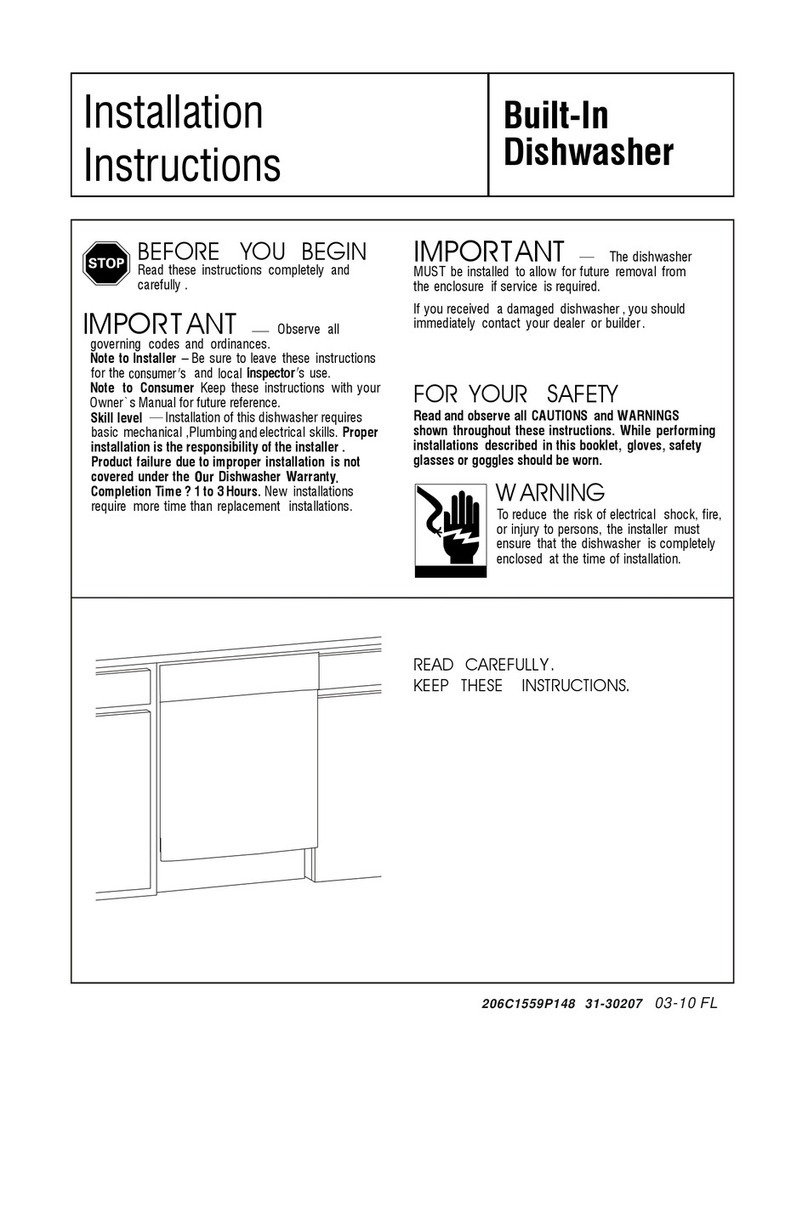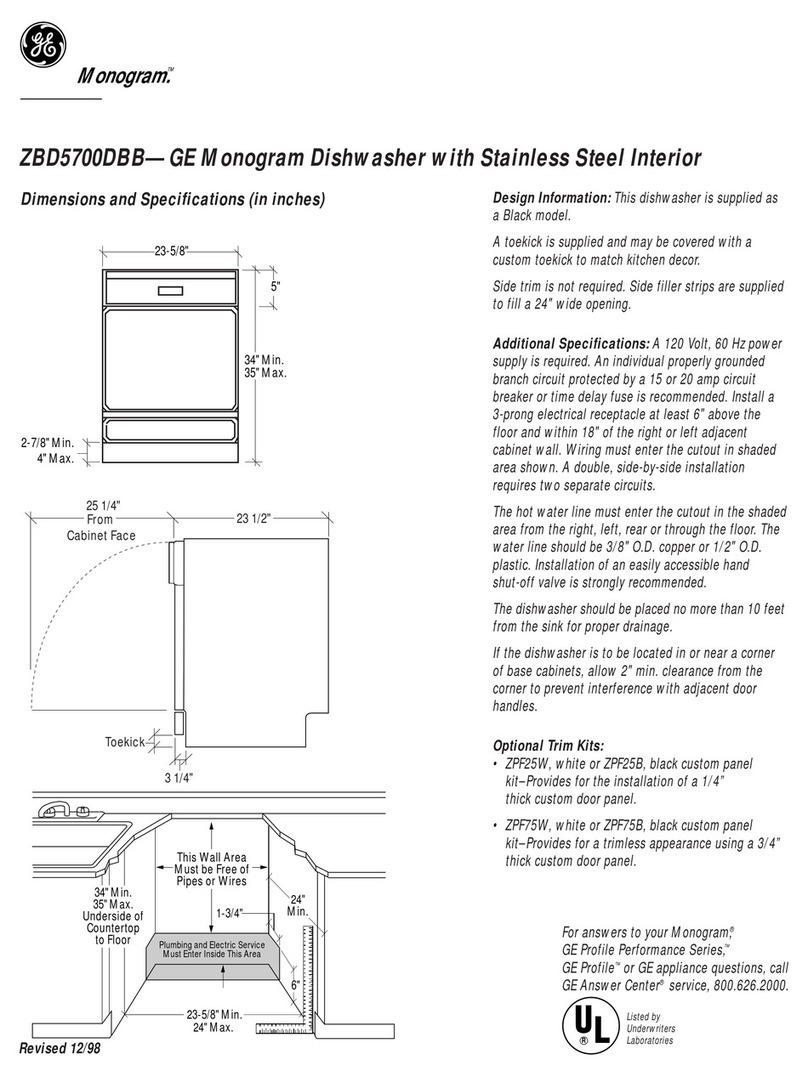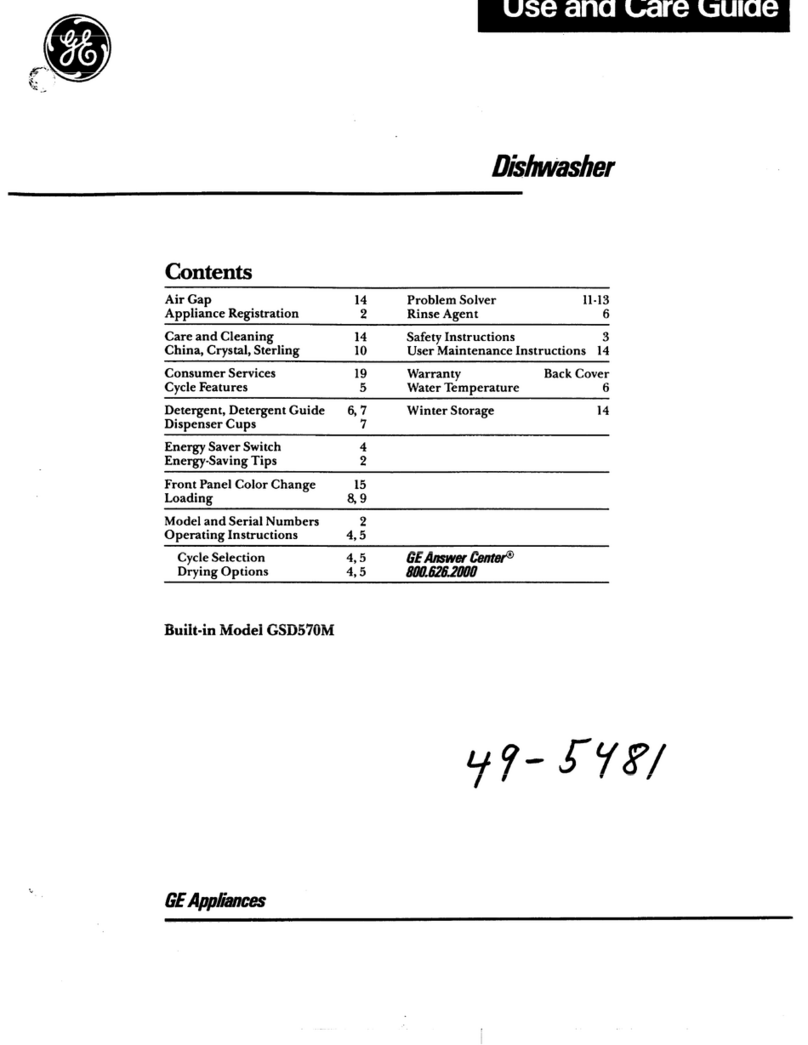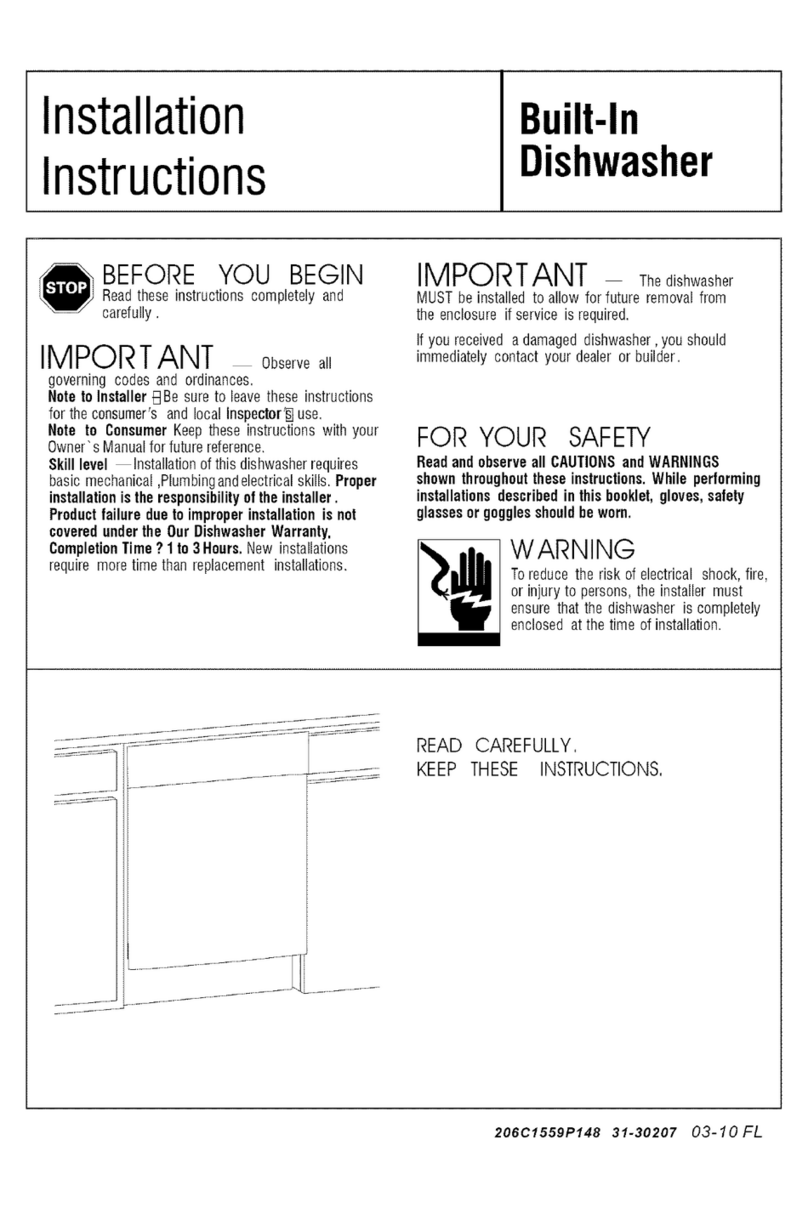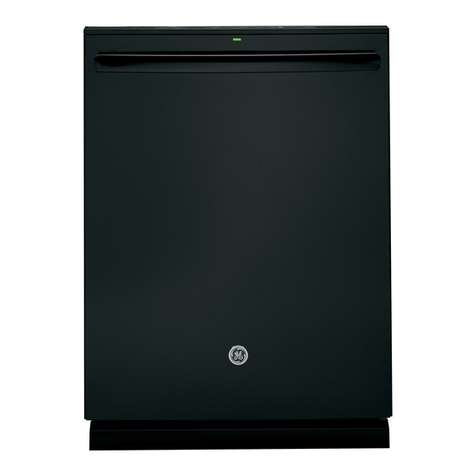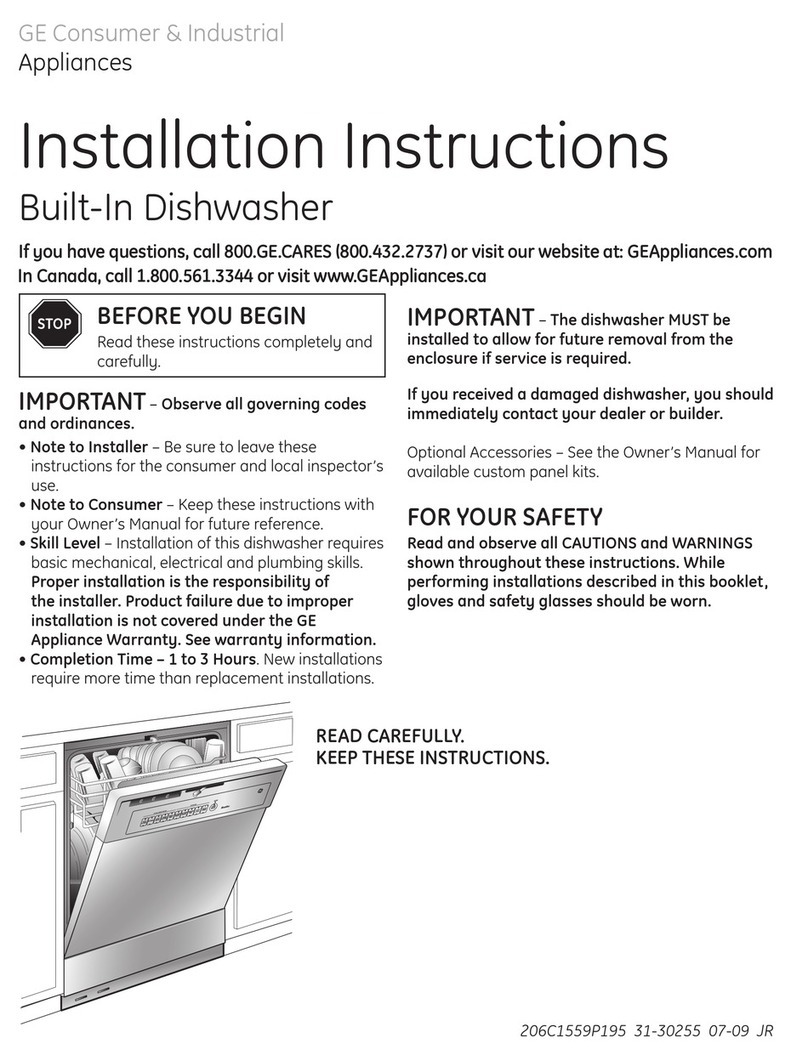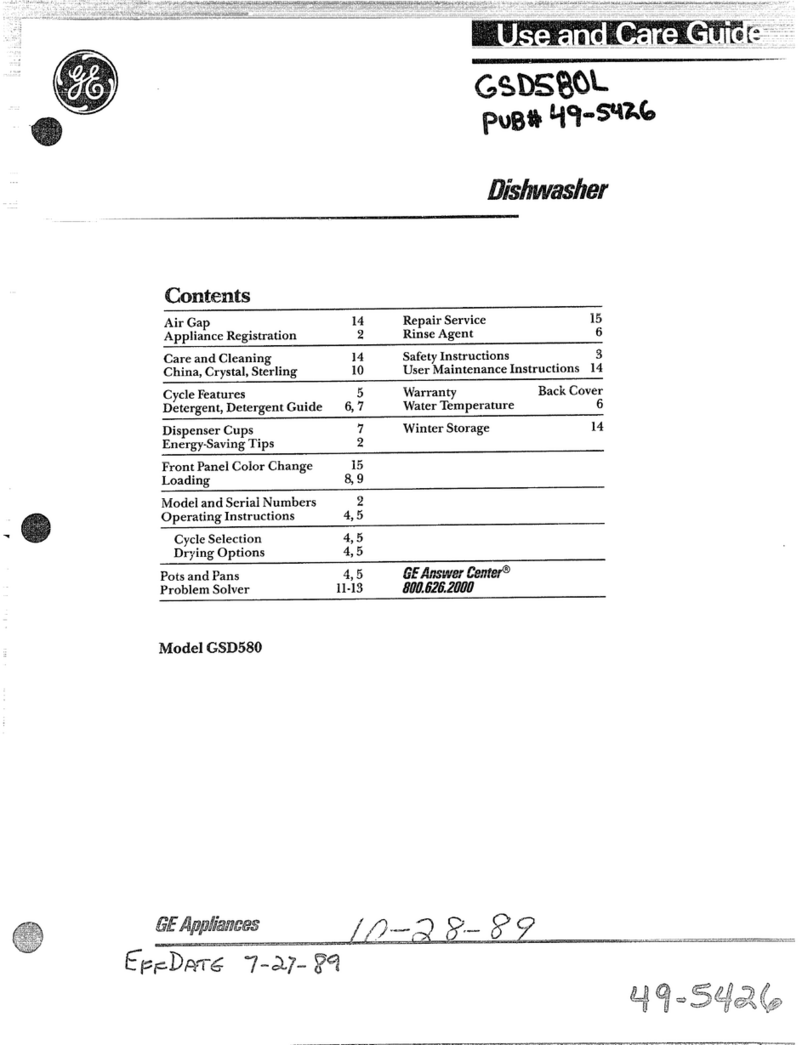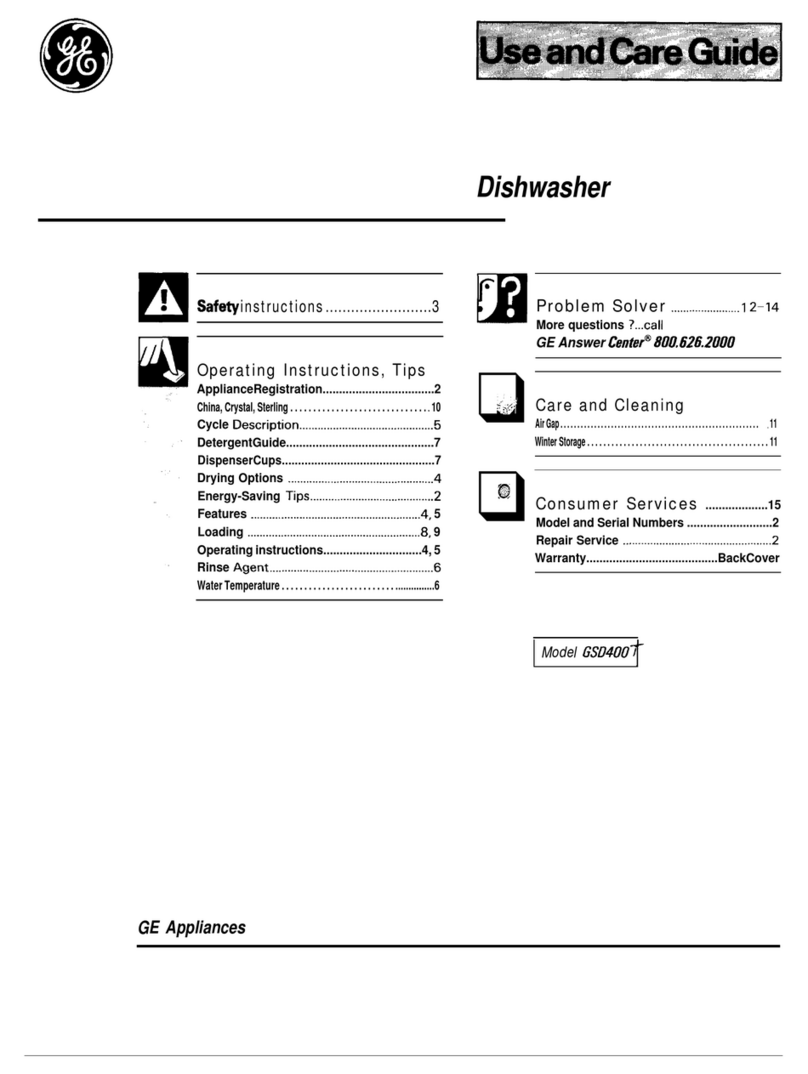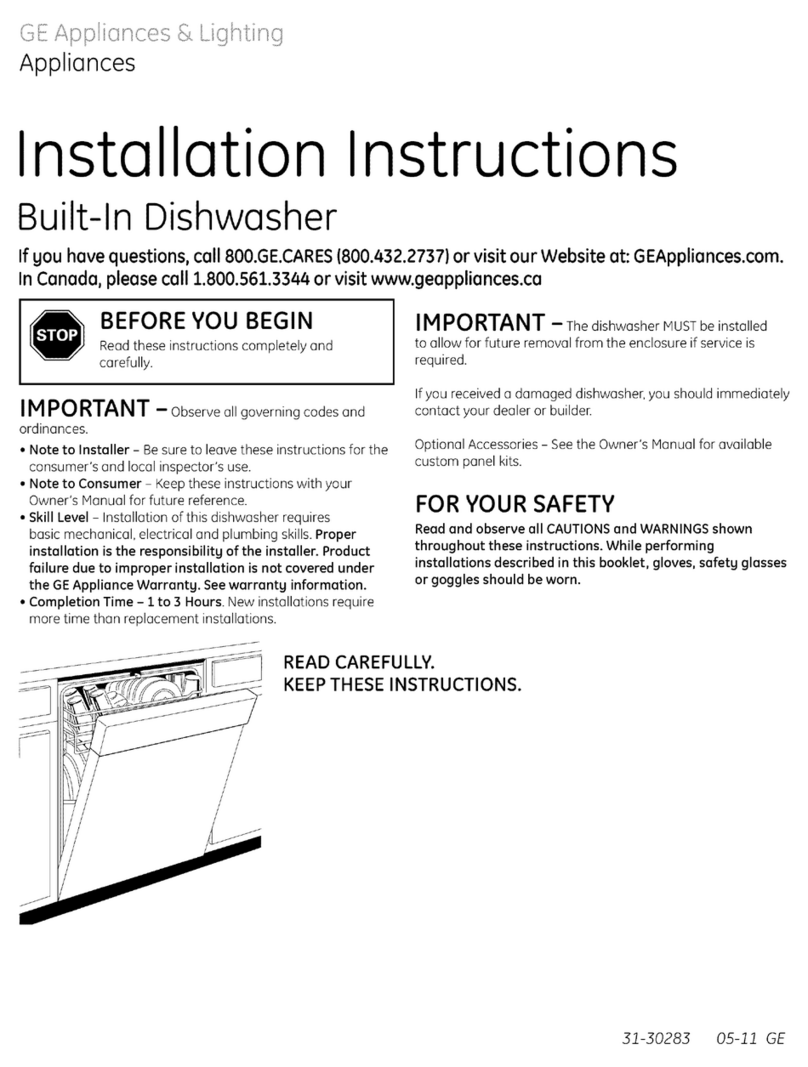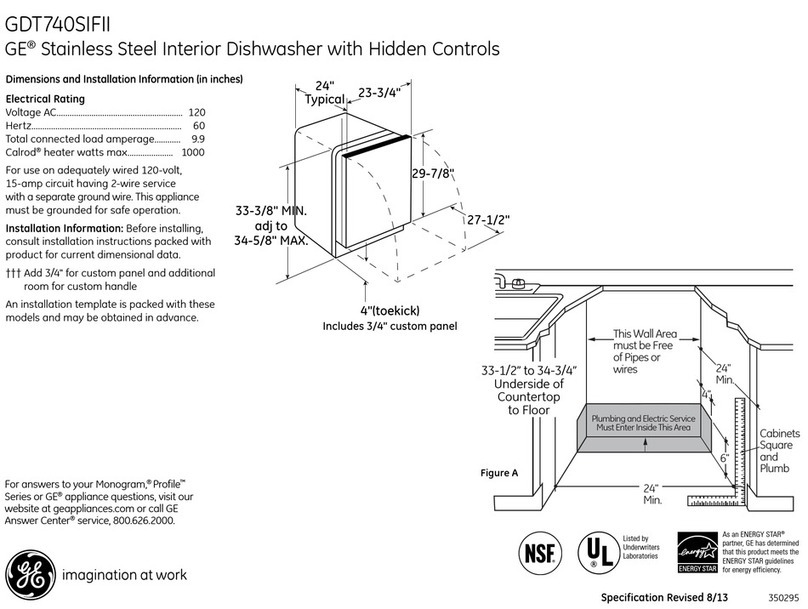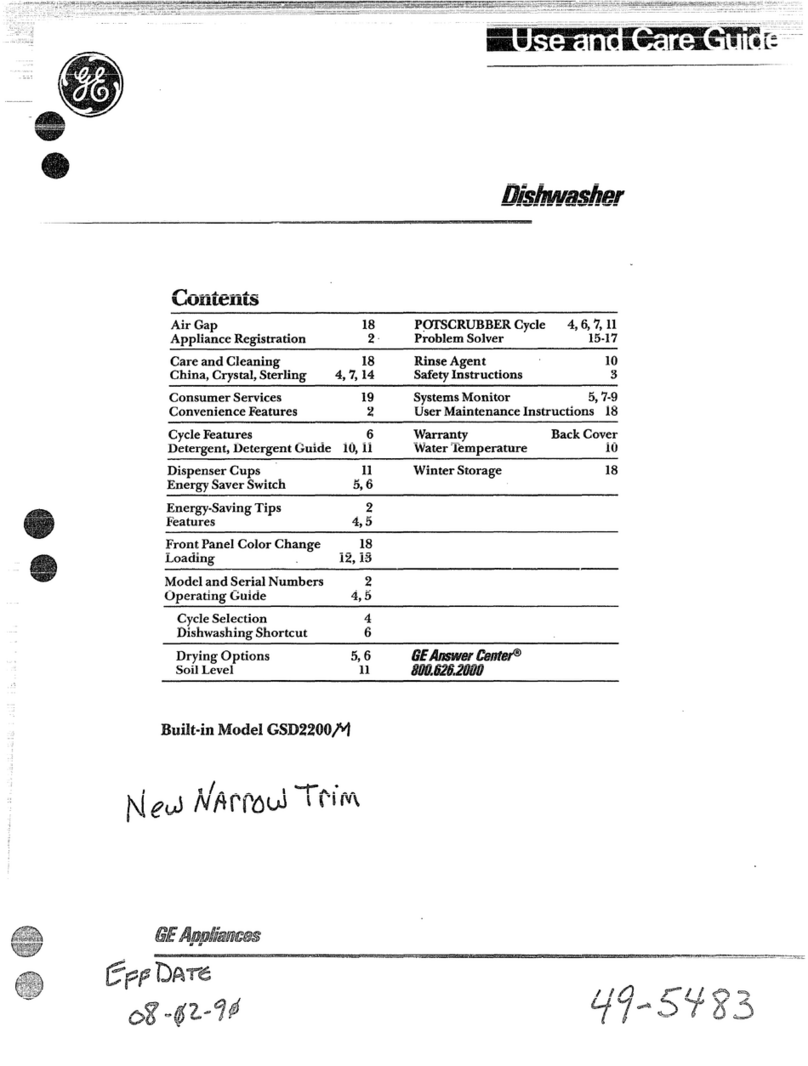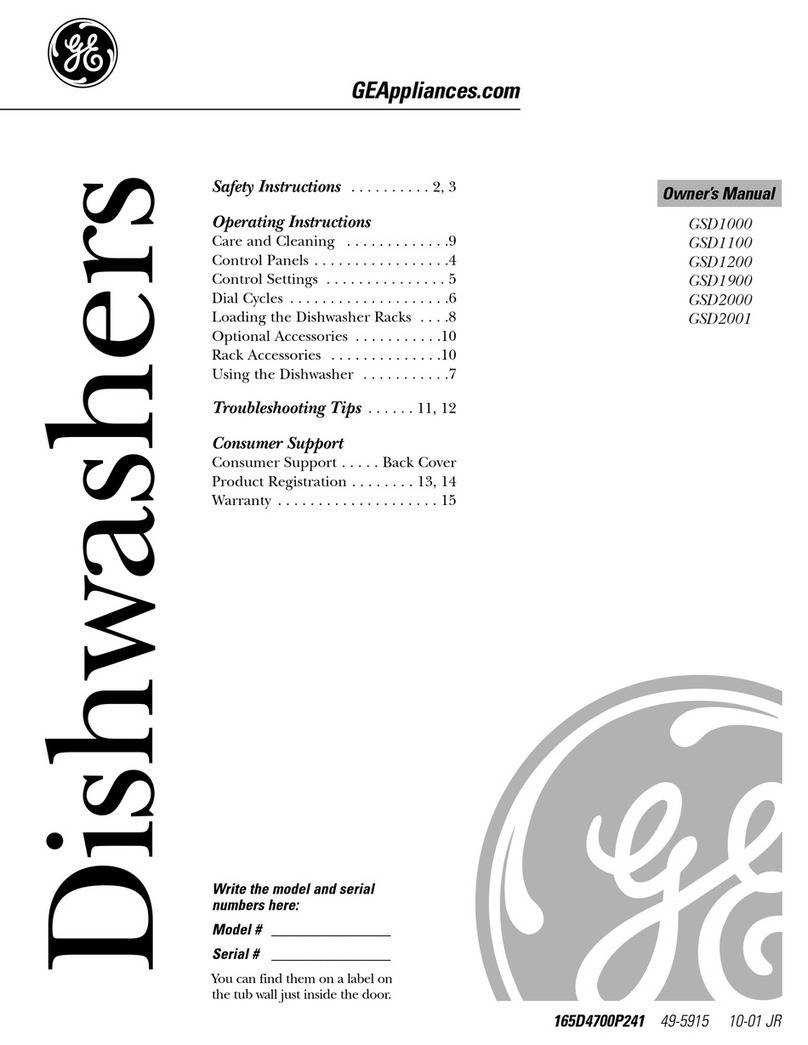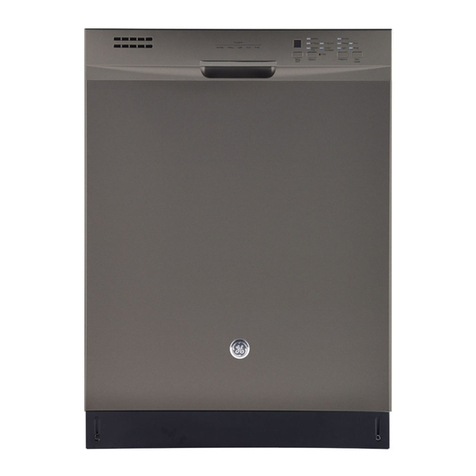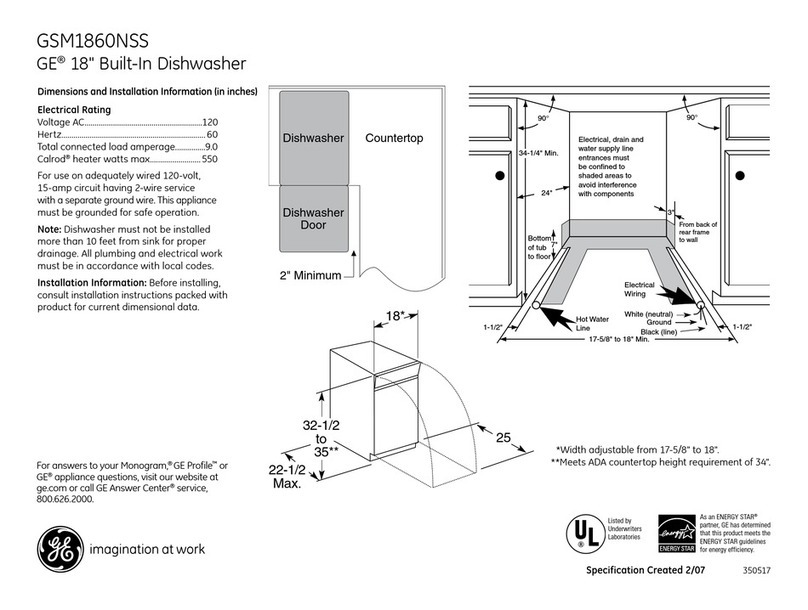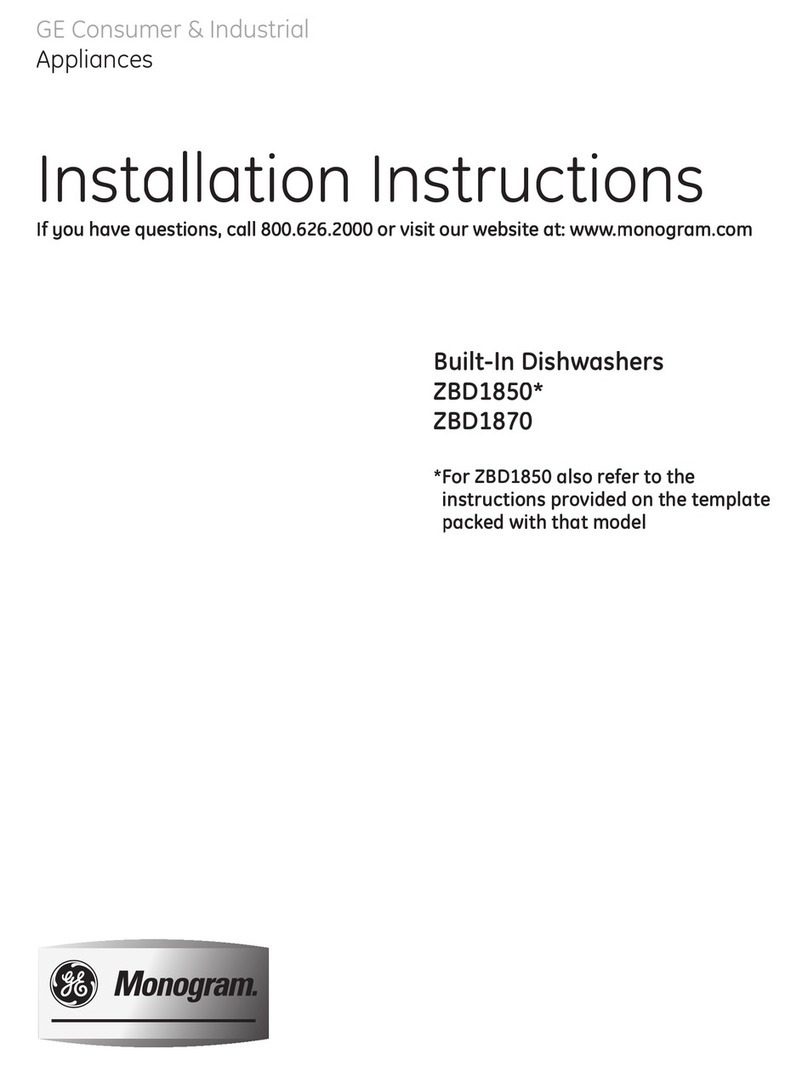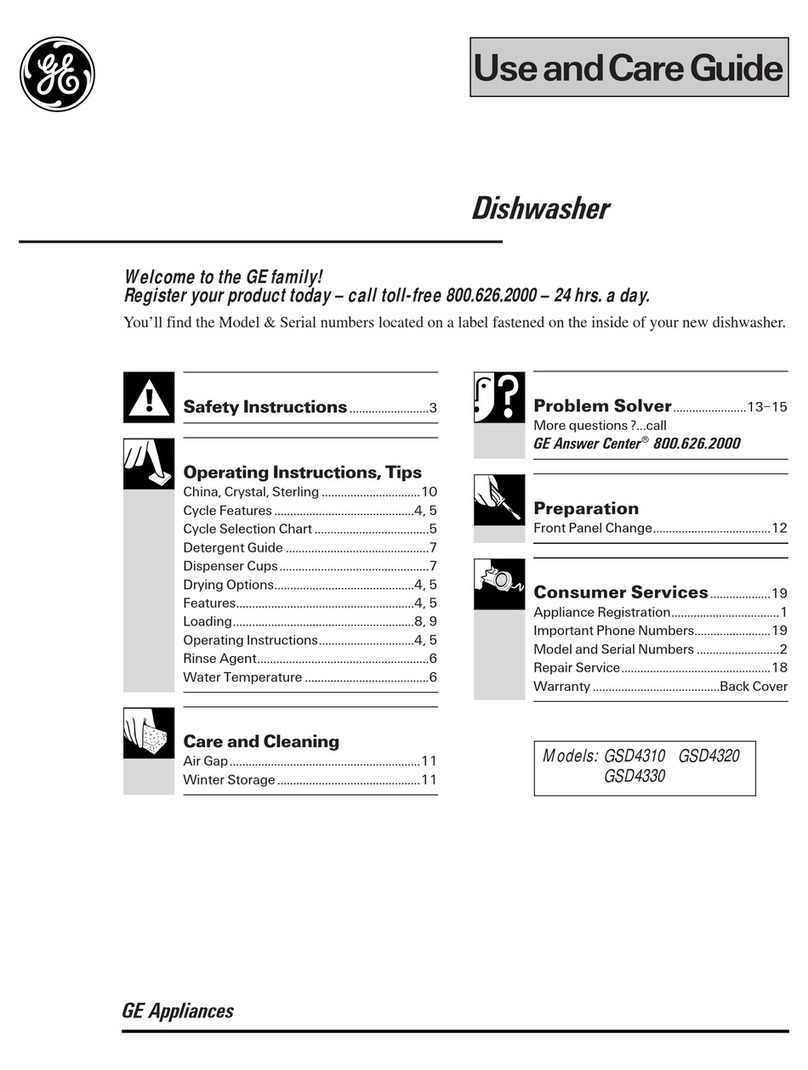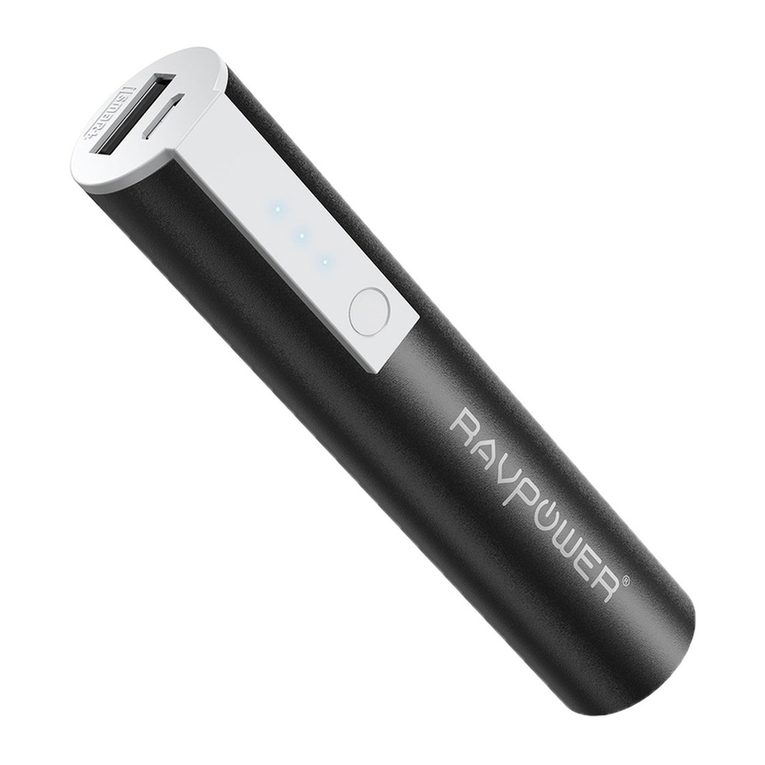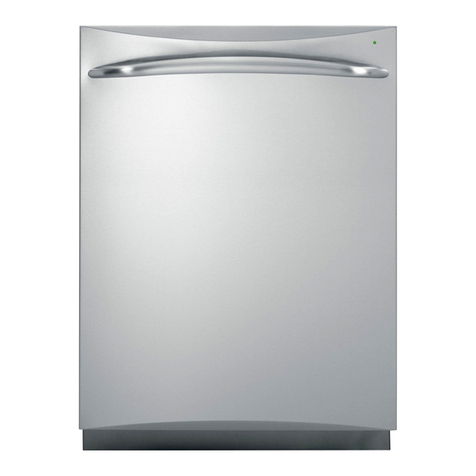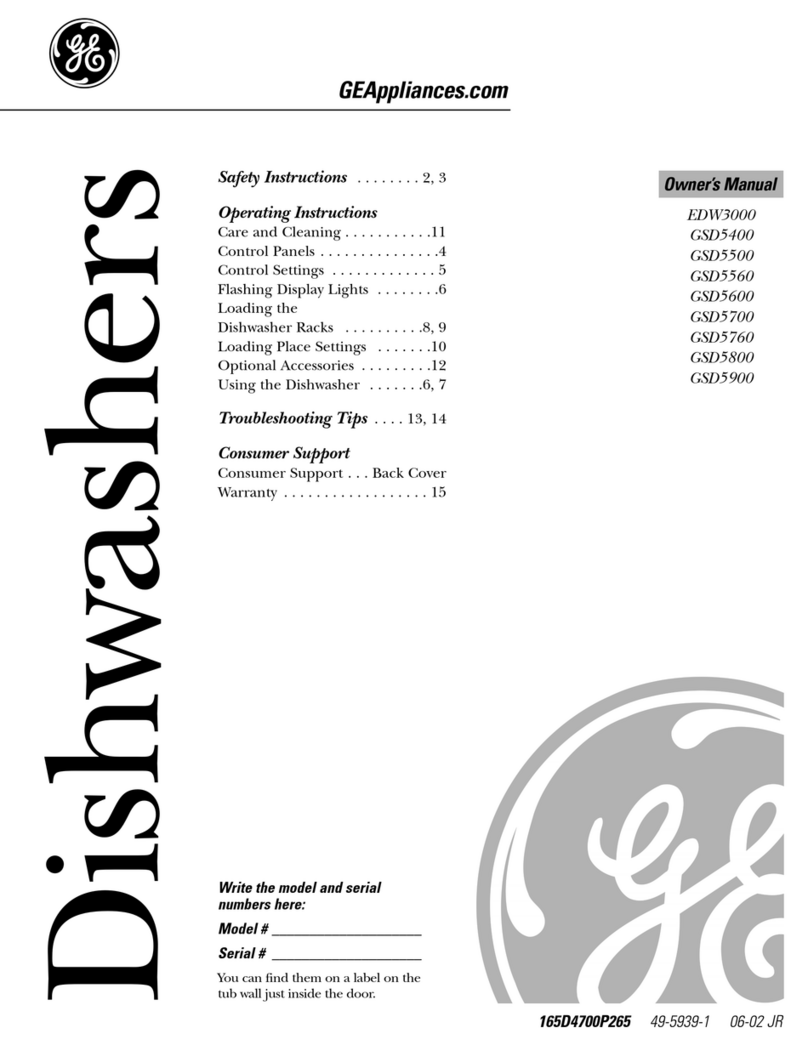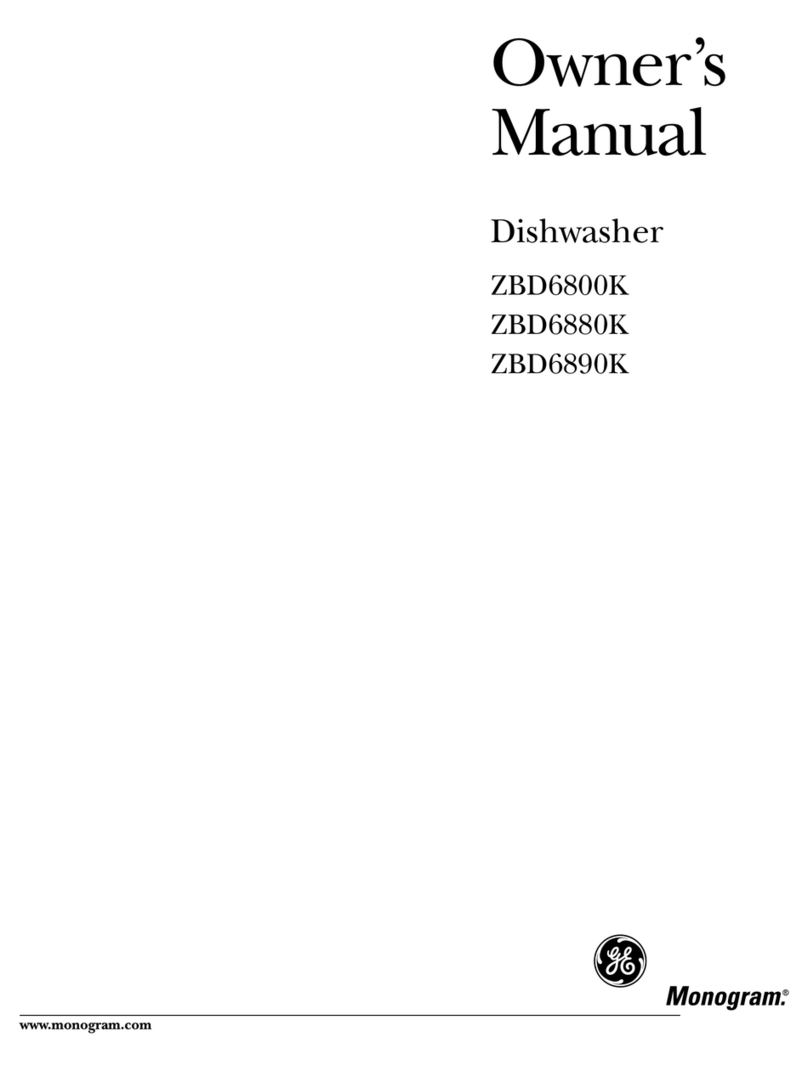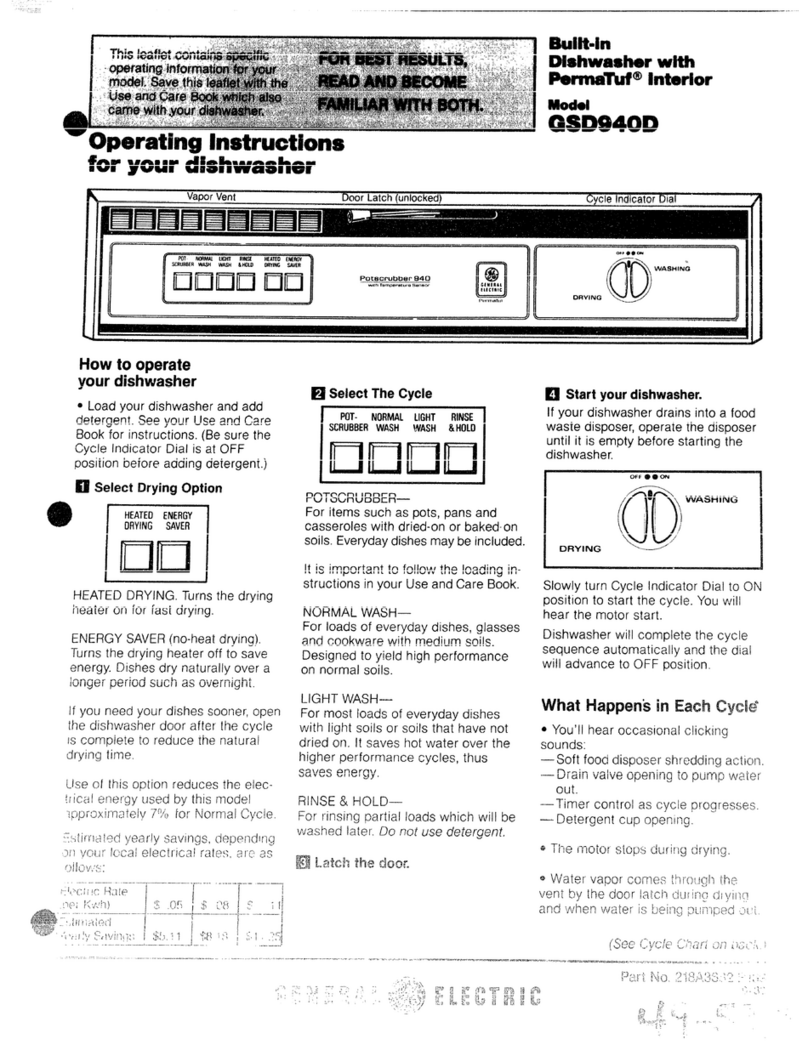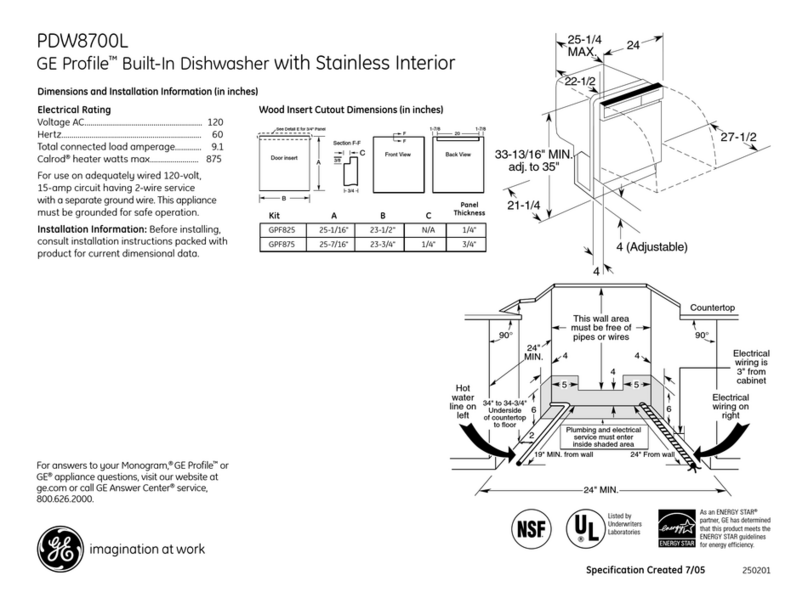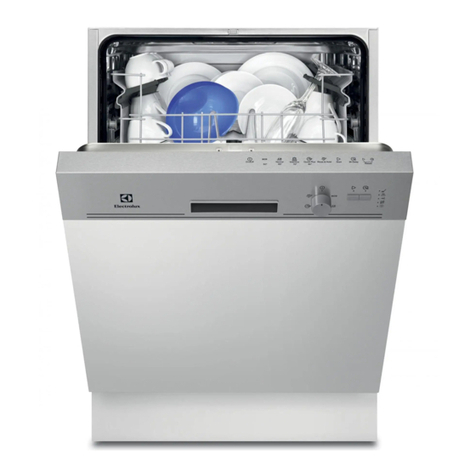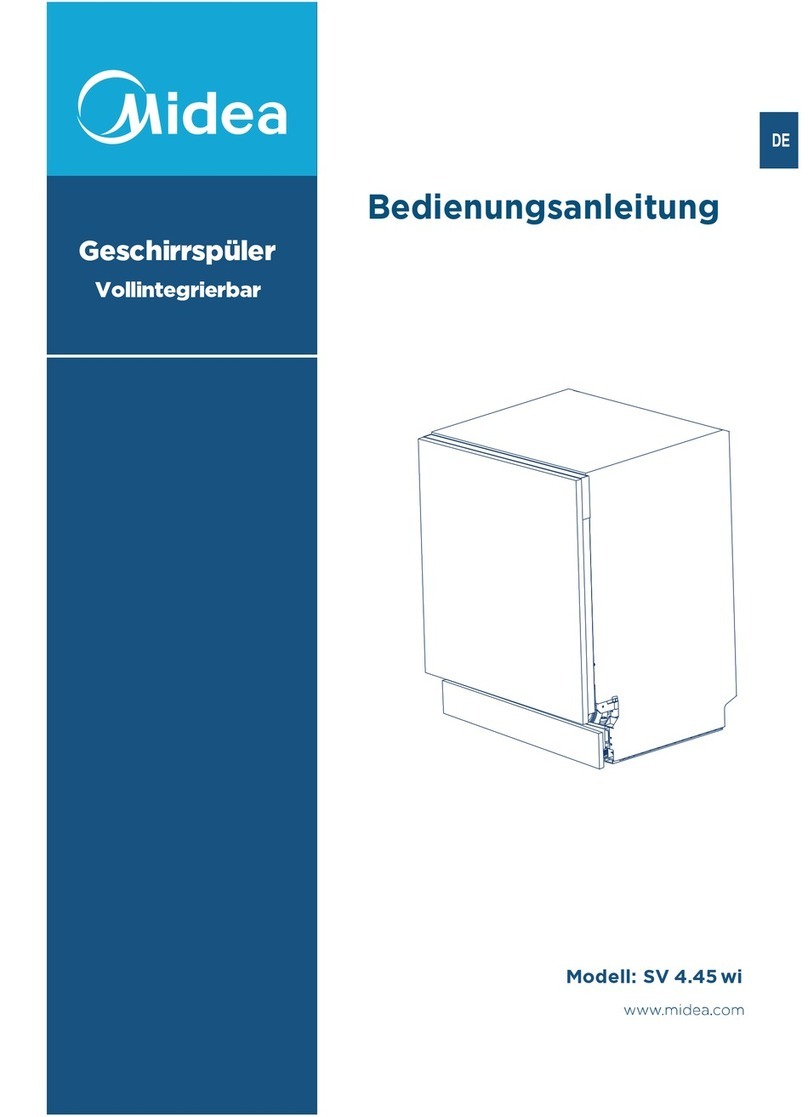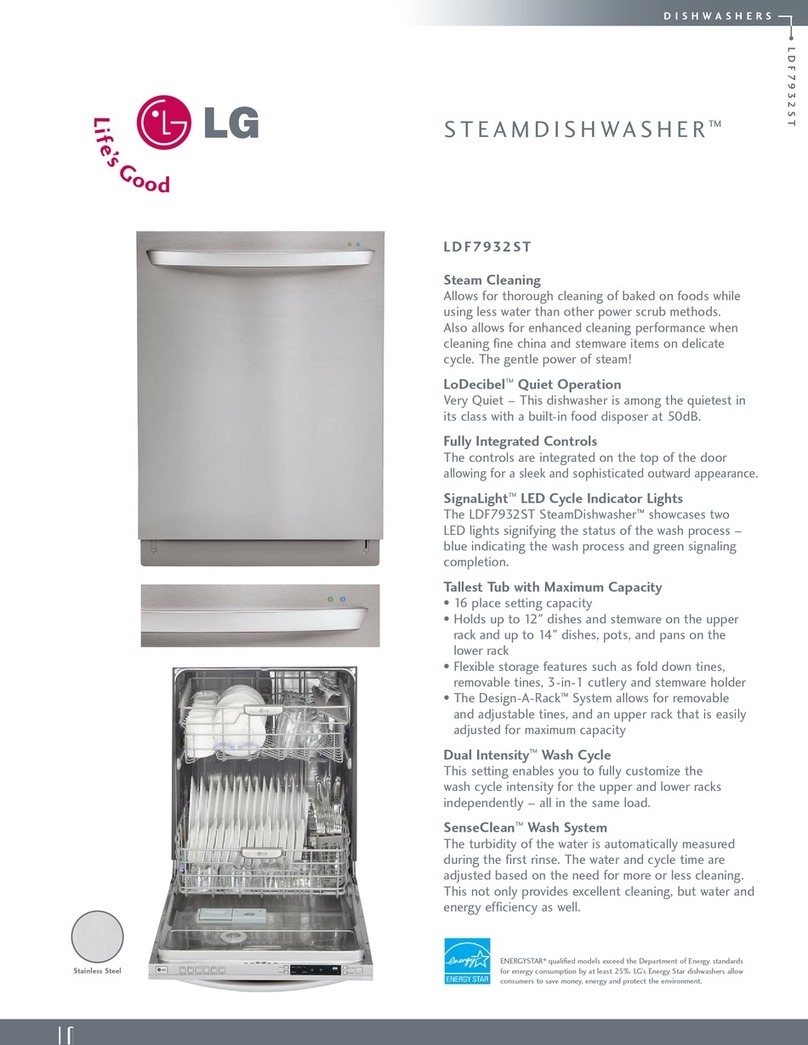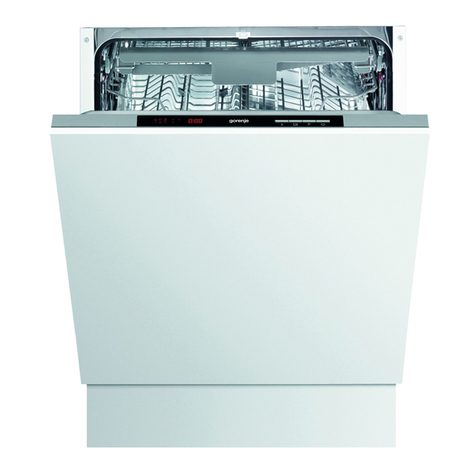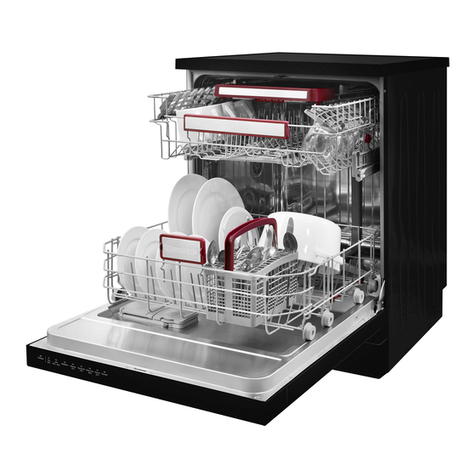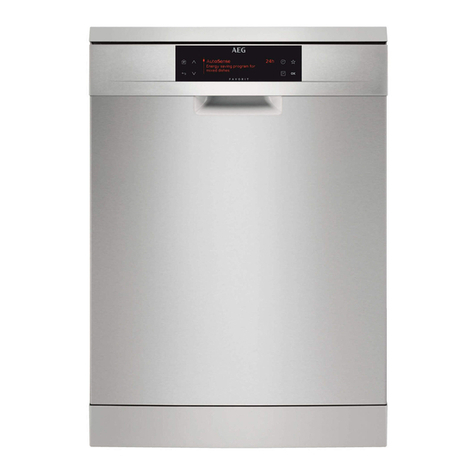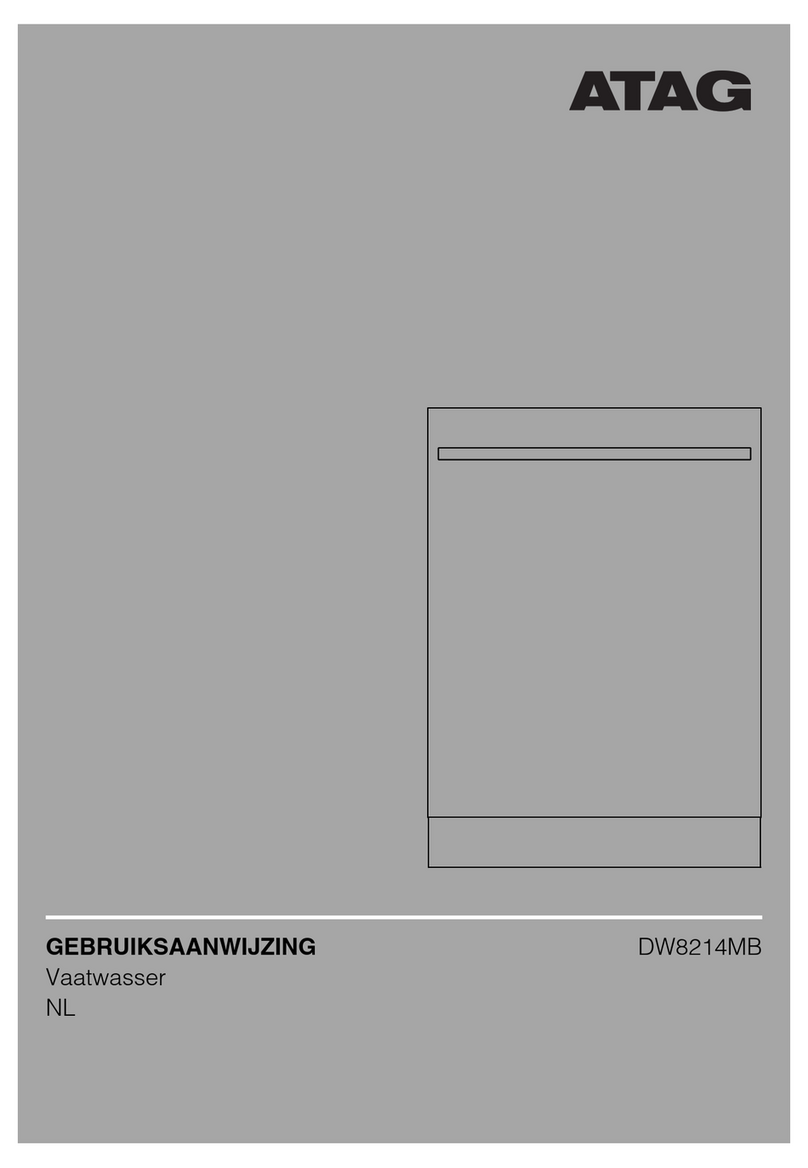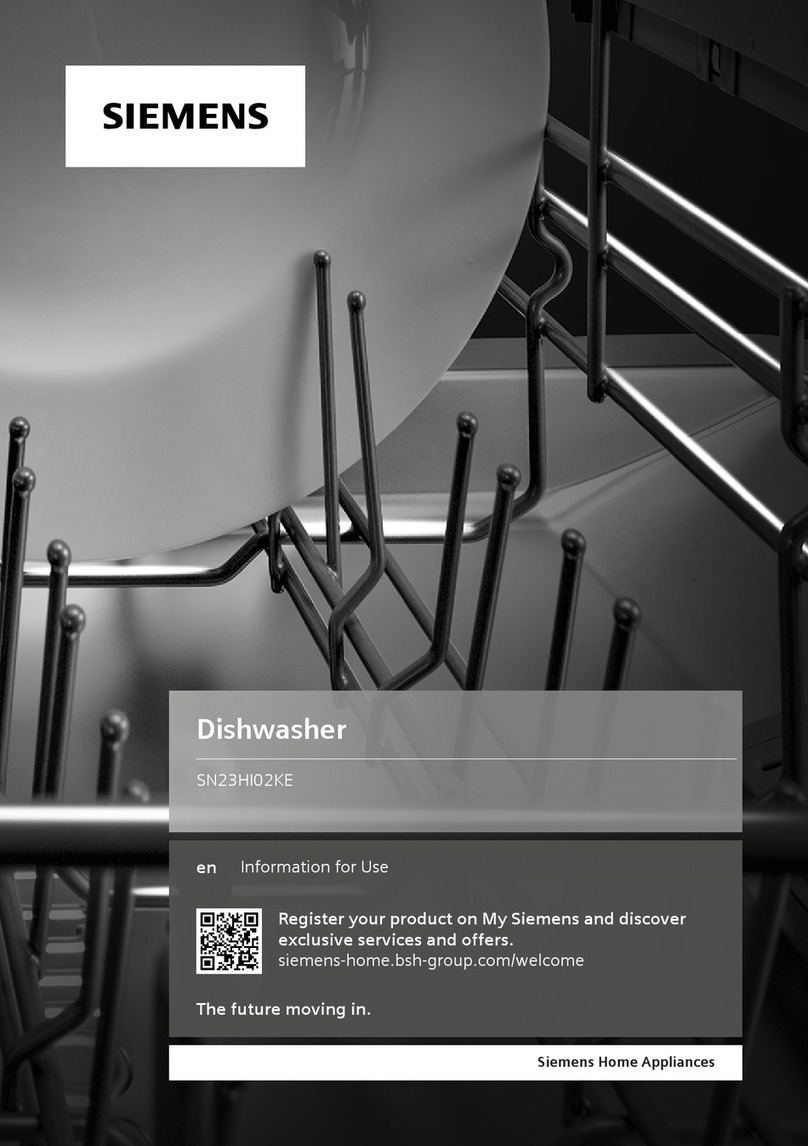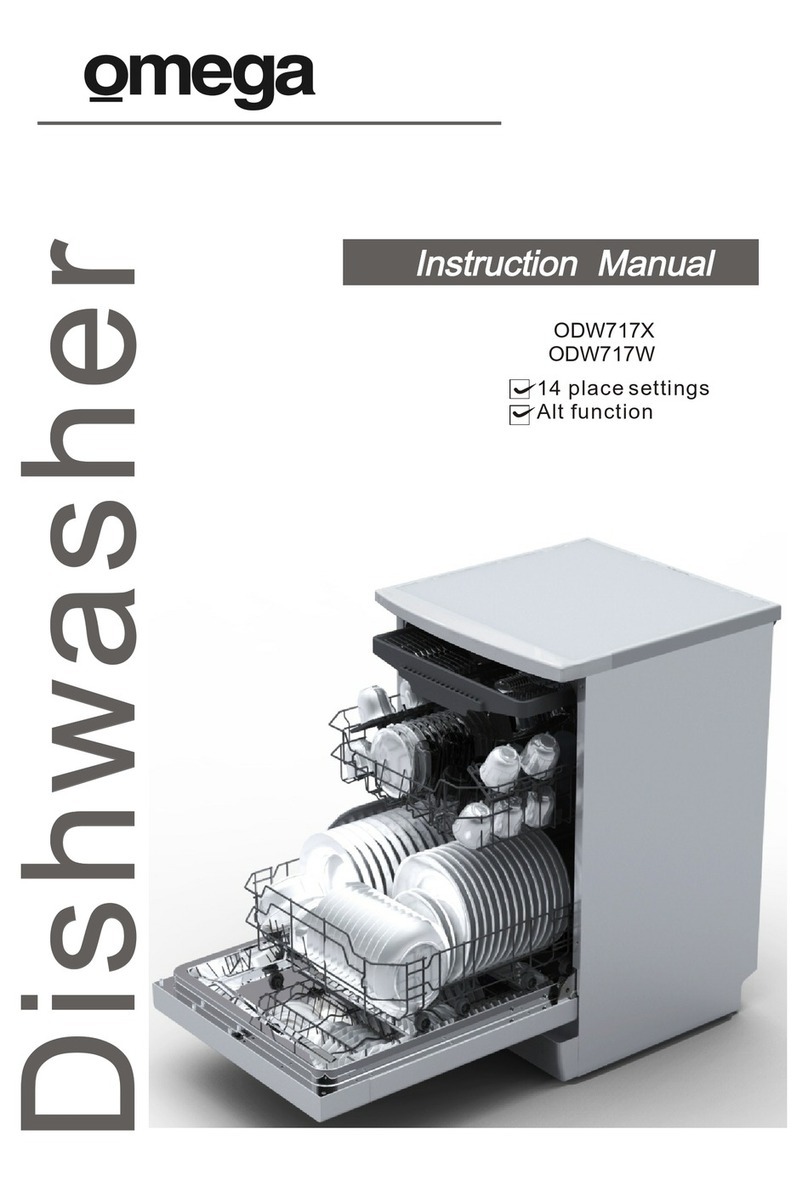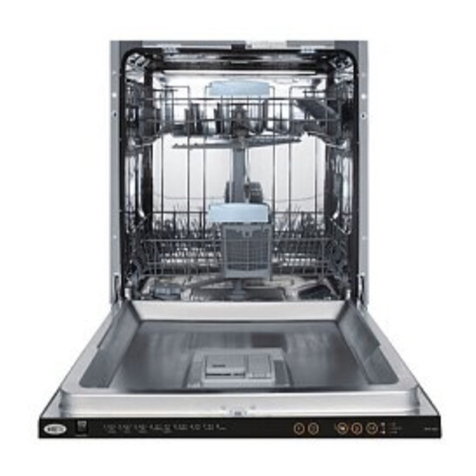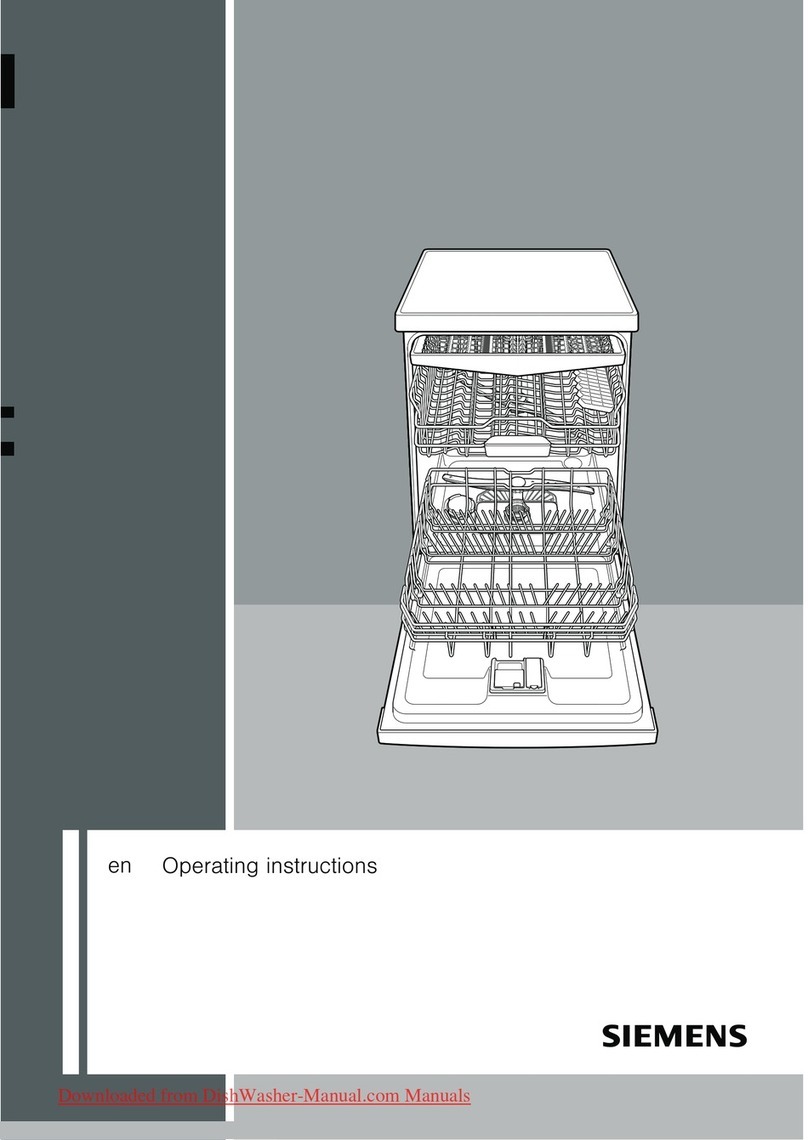
Installation Instructions
10
Figure AA
STEP 16 PRE-TEST CHECK LIST
Review this list after installing your dishwasher to
avoid charges for a service call that is not covered by
your warranty.
Check to be sure power is OFF.
Open door and remove all foam and paper
packaging.
Locate the Owner’s Manual in the literature
package.
Read the Owner’s Manual for operating
instructions.
Check door opening and closing. If door does not
open and close freely or tends to fall, check spring
cable routing. See Step 1.
Check to be sure that wiring is secure under the
dishwasher, not pinched or in contact with door
springs or other components. See Step 10.
Check door alignment with tub. If door hits tub,
level dishwasher. See Step 11.
Pull lower rack out, about half way. Check to be
sure it does not roll back or forward on the door. If
the rack moves, adjust leveling legs. See Step 11.
Check door alignment with cabinet. If door hits
cabinet, reposition dishwasher. See Step 12.
Check that door spring does not contact water line,
fill hose, wiring or other components. See Step 13.
Verify water supply and drain lines are not kinked
or in contact with other components. Contact with
motor or dishwasher frame could cause noise.
Turn on the sink hot water faucet and verify water
temperature. Incoming water temperature must be
between 120°F and 150°F. 120°F min. temperature
is required for best wash performance. See “Pre-
pare Hot Water Line,” page 4.
Add 2 quarts of water to the bottom of the
dishwasher to lubricate the pump seal.
Turn on water supply. Check for leaks. Tighten
connections if needed.
Remove protective film if present from the control
panel and door.
STEP 15 CONNECT POWER
SUPPLY
Skip this step if equipped with power cord
Verify that power is turned off at the source.
(If a power cord with plug is used, proceed to Step 16.)
• Remove junction box cover.
• Secure house wiring to the back of the junction box
with a strain relief.
• Locate the three dishwasher wires, (white, black and
green) with stripped ends. Insert dishwasher wires
through the small hole in the junction box. Use wire
nuts to connect incoming ground to green, white to
white and black to black.
• Replace junction box cover. Check to be sure that
wires are not pinched under the cover.
If house wiring is not 2-wire with
ground, a ground must be provided
by the installer. When house wiring is
aluminum, be sure to use UL Listed
anti-oxidant compound and alumi-
num-to-copper connectors
White
Ground Black
Check That White, Black and
Green Dishwasher Wires Are Threaded
Thru Small Hole in Bracket
Remove
Junction Box
Cover
Insert Power
Cord Wires Thru
Strain Relief
and Tighten
Use UL Listed
Wire Nuts
A
B
C
D
